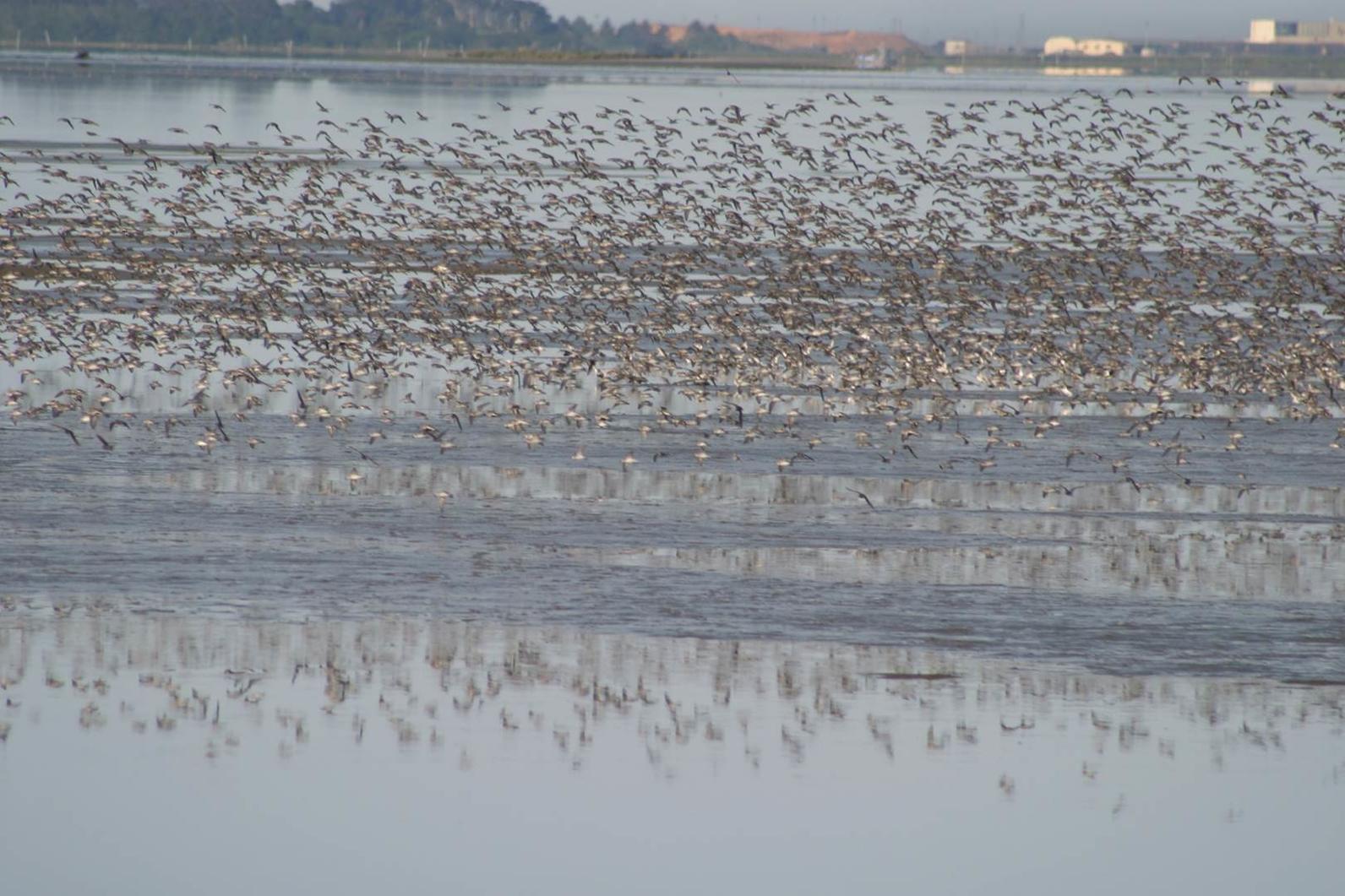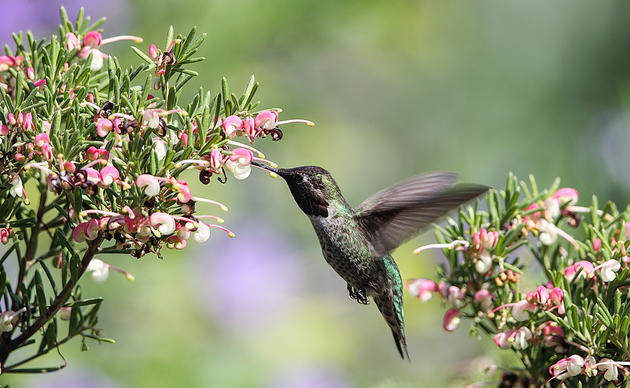
The California Coastal Commission last week at its meeting in Arcata voted to reject Coast Seafoods’ bid to substantially expand its oyster farming operations in eelgrass habitat in Humboldt Bay, citing numerous concerns about the impacts of the aquaculture operation to eelgrass, waterbirds, shorebirds, herring, and recreational access and safety. We applaud the Commission's decision to protect public trust resources under the Coastal Act, and recognize this decision as an opportunity to truly ensure birds and their habitats are protected as aquaculture continues in the bay.
Humboldt Bay is one of the most important places on the West Coast for birds and other wildlife. While small compared with San Francisco Bay, it supports about half of the state’s remaining eelgrass, a marine habitat so critical that Governor Brown signed legislation in 2016 highlighting its importance to our state and calling for its protection and study. The Bay hosts up to 60% of migrating Black Brant, a beautiful sea goose that is completely dependent on eelgrass during migration and is highly sensitive to disturbance. The bay supports the highest diversity of shorebirds on the West Coast and some of the highest abundances of these birds – including 23% of all western sandpiper and 43% of all Pacifica subspecies of dunlin during migration, and over 10% of all overwintering marbled godwit. It supports our state's third largest population of Pacific herring, an essential forage species for surf scoter and dozens of other waterbirds. Herring in Humboldt Bay only spawn in eelgrass.
The version of the project presented at the meeting allowed most of these operations to continue, and also would have permitted the company an additional 29% expansion in eelgrass habitat. The current 300-acre operation already occupies over 5% of Humboldt Bay’s eelgrass habitat, equal to at least 2.6% of the entire state’s eelgrass habitat. Audubon activists sent nearly 3,000 letters to the Commission, and at the meeting, Commissioners heard from numerous members of the public speaking in opposition to the project, including Redwood Region Audubon, Audubon California, California Waterfowl Association, independent scientists, individual fishermen, hunters and other citizens.
Speakers noted that existing aquaculture in the bay – primarily oysters hung on spaced lines – has damaged or destroyed eelgrass, excludes and/or creates ongoing disturbance to birds, excludes Brant from feeding, may be suppressing herring spawning, and poses dangers and inconveniences to recreational hunters and other bay users. In discussion before the vote, Commissioners noted both the helpfulness and importance of these comments in their consideration of the project before them.
Audubon supports properly sited and scaled aquaculture in California. Coast Seafoods' project is the largest of three aquaculture expansion projects recently put forward in Humboldt Bay, representing an assault on this key place for birds. We are fighting these bad proposals on several fronts. Earlier this year, Audubon and California Waterfowl, a hunting and habitat protection organization, together filed a lawsuit against the company and the lead agency that certified their environmental impact report.
The Commission's decision last week was a real breakthrough in our fight to protect this essential place for birds, providing an opportunity to ensure aquaculture here is properly sited and scaled. In the coming months we will be advocating for a spatial planning exercise that identifies key habitat areas that must be set aside for birds and other wildlife as well as areas that are suitable for growing shellfish. The result will serve as the blueprint for balancing these sometimes competing interests, and ensure our beautiful shorebirds, waterbirds and Pacific black brant will continue to thrive.
By Anna Weinstein
Monthly Giving
Our monthly giving program offers the peace of mind that you’re doing your part every day.




